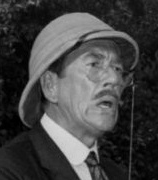|
HEGEL CURES THESES posted:Checked "Barbarossa Derailed" out of the library: what does "deep operations" mean, ok awesome... Deep Operations was the core of Soviet military doctrine, developed in the 1920s and 1930s by veterans of WWI and the Russian Civil War, principally Mikhail Tukhachevsky. The word "Deep" referred to the aim of attacking and disrupting not only the enemy's front-line combat units but their entire force structure including rear areas. On the offensive, camouflage and deception would be used to ensure the enemy was taken by surprise, then heavy attacks by multiple echelons of Soviet troops would engage the enemy. As the first echelon came to grips with enemy forces, the field of battle would take shape and following echelons could be directed to promising sectors, forcing the enemy to commit his reserves. When breaks appeared in the enemy line, Soviet mobile forces held in reserve would drive into the enemy's rear areas, bypassing strong points and disrupting his support structure. In the 1930s, as effective aerial bombing and parachute infantry operations entered the realm of possibility, the doctrine incorporated the idea of using vertical envelopment (i.e. from the air) to take the enemy's entire force under attack simultaneously. Deep Operations were similar in this respect to contemporaneous military theories developed in Britain and Germany, except that it was somewhat better defined. I believe that currently military history work on WWII has come around to the idea that "Blitzkrieg" was not really a fully-formed operational doctrine but rather something that emerged in practice as the German Army applied more general concepts of combined arms offensive operations. Any road up, the key difference between Deep Operations and German doctrine of the same time was that the Germans relied on the idea of the schwerpunkt, where their offensive force would be concentrated on a single point to force a breakthrough. Deep Operations instead called for successive waves of attacks a wide frontage, which would reveal where the enemy was strong and where he was weak, allowing additional forces to be allocated to the weak sectors, creating multiple breakthroughs and making it prohibitively difficult for the enemy to use his reserves to contain them. Another difference was that the German spearheads tended to pause to help destroy encircled enemy formations at the tactical level, whereas Deep Operations called for the Soviet forward elements to exploit further into the enemy's operational and strategic depth, trusting on the following units and the sheer havoc of the Soviet attack to widen the breaches and disrupt the enemy. Prior to WWII Stalin came to suspect the Soviet officer corps as a threat to his power and purged them, with a fairly huge proportion of them being killed or imprisoned, disproportionately weighted to the high ranks. Many of the proponents of Deep Operations, including Tukhachevsky, were among those killed. As a result the doctrine fell into disfavor before the war, and in any case the massive loss of trained officers at all ranks did away with the talent necessary to execute the doctrine effectively. The abysmal performance of the Red Army in the Winter War and the opening stages of the Great Patriotic War/Eastern Front are due in large part to this problem. In addition, the material requirements to fully execute Deep Operations--trucks, mainly--were not available until later on. The classic Deep Operation is the 1944 Soviet summer offensive, designated Operation Bagration. This is worth reading up on in itself, but basically the Soviet attack proceeded exactly as described, and the Red Army completely neutralized the largest and most powerful part of the German Army (Army Group Center) and recaptured Belarus and a substantial part of Poland and Ukraine at one stroke. quote:and how do you reconnoiter in a world without cavalry? The text mentions aerial reconnaissance frequently, but are there any other approaches? In the WWII context reconnaissance can be conducted in a number of different ways. Aerial reconnaissance is one, which has mixed results since your planes can get pictures to a good depth and over a wide area but obviously can only see things that are visible from the air. On the ground, cavalry were still around--the Soviets in particular maintained cavalry forces well into WWII, and they were particularly effective in winter conditions. Armored cars and light tanks were also used in an analogous role, zipping out to see what they could see. There is also recon by fire, which amounts to shooting at where you think the enemy might be to see if they shoot back. I believe the American military was particularly fond of this, because their supporting artillery and aircraft were really amazingly well-organized and could deliver bombs, rockets, and shells anywhere they were needed very quickly. American units could simply press forward until the enemy started fighting back and thereby revealed their positions, which exposed them to support fire. Once they were disrupted and weakened by artillery and air strikes, the American forces could push them back with frontal attacks, then the process would be repeated at the next defensive position. The method often preferred by the Germans and Soviets was to use specialist infantry who would stealthily infiltrate the enemy line to get an idea of their positions and possibly mount small raids to capture individual soldiers for interrogation. In Soviet service these units were the precursors to the modern Soviet/Russian Spetsnaz special forces. Schenck v. U.S. fucked around with this message at 02:18 on Jul 14, 2013 |
|
|
|

|
| # ? Jun 11, 2024 15:36 |
|
SkySteak posted:It was said that at Jutland, Jellicoe "...was the only man on either side who could have lost the war in an afternoon.". I hope this isn't too alt history for this thread but if the Royal Navy's forces at Jutland HAD been heavily damaged to near completely destroyed, what would've been the consequences for WW1? Would it have given the Germans enough to turn the tide or is more of a matter of more lives lost and the war just dragging on longer? The point of Jutland was to destroy the Royal Navy so it could no longer blockade Germany. If they had succeeded without sustaining criplling loses themselves, they could have destroyed the bloackade forces (or at least forced them to withdraw), opening the way to free trade with the rest of the world. If they retained enough forces to blockade Britain herself, things get worse. And not to say anything about the role the RN played in the perception of the public concerning the defense of Britain. With no Navy, there would be an immediate invasion scare, quite possibly leading to a recall of forces from France or at least an attempt to white peace out of the war. The big question is what America would have done.
|
|
|
|
Eastern Front effort posts are the best posts.
|
|
|
|
Shimrra Jamaane posted:Eastern Front effort posts are the best posts. The future is weird.
|
|
|
|
Throatwarbler posted:Singapore also has a huge army and F15s. They could probably run roughshod over half of SE Asia if they wanted to. Not likely, the only reason our military is so big is because it's based on conscription. Any war that lasts longer than a couple of weeks is going to gently caress up our economy very seriously.
|
|
|
|
Wastrel_ posted:Not likely, the only reason our military is so big is because it's based on conscription. Any war that lasts longer than a couple of weeks is going to gently caress up our economy very seriously. Also, the Singaporean military is proportionately huge for a city state, but is still small in comparison to Thailand or Vietnam, the real regional powers.
|
|
|
|
About Deep Battle; What's the time scale for Deep Battle? Like, is it hours, to take a particular location, or is it something that occurs over weeks or months (years?) as you keep rolling forward from battle to battle? The other, it seems like Deep Battle relies on having a bigger army. I realize that it's quite a feat to actually get it deployed correctly, but it's like, if you're going to attack everywhere, then throw in even more dudes where the enemy falls back, then you're going to need a lot more soldiers. Then compared to blitzing, which seems like, the enemy has more soldiers, but we're going to avoid fighting most of them by destroying one section before the rest can react? Is it vulnerable to uh, defense in depth? Like, the lead element getting cut off, surrounded, and destroyed separately?
|
|
|
|
Rockopolis posted:What's the time scale for Deep Battle? Days to weeks. Operation Bagration took about a month, but a good portion of that was clearing weak German forces out of occupied territory until the Soviets ran out their logistical tether. quote:The other, it seems like Deep Battle relies on having a bigger army. Considering that Deep Operations was a doctrine developed by the Soviet general staff for their own military, should it be particularly surprising that they assumed numerical superiority? In any case, the point is not absolute superiority but local superiority, which is supposed to be accounted for by use of deception. Soviet forces across the entire theater might not be markedly superior, but by deceiving the enemy as to the location of the Soviet main strength, the Soviets would achieve superiority in the specific sectors that would come under attack. This is what they were able to do, for example, in the '41-'42 winter offensive, although disorganization and inadequate command, German opposition, and insufficient logistics hobbled the exploitation phase and allowed the Germans to catch their breath. quote:Then compared to blitzing, which seems like, the enemy has more soldiers, but we're going to avoid fighting most of them by destroying one section before the rest can react? Again, historians of WWII have reexamined the concept of the Blitzkrieg. The current view is that it was something that was invented not as a doctrine of the German general staff, but rather as a media term to explain how the German military had so quickly defeated its enemies. The reality is that the Germans had a rather straightforward combined-arms offensive doctrine and then were incredibly lucky with what happened when they executed it. quote:Is it vulnerable to uh, defense in depth? Like, the lead element getting cut off, surrounded, and destroyed separately? "Blitzkrieg" style attacks are vulnerable to defense in depth because they are designed around creating a breakthrough with application of overwhelming force to a single point. In cases where enemy forces were not disrupted, the Germans failed to achieve operational freedom of maneuver, such as Kursk or the '44 Ardennes Offensive. In those events continuous opposition and flanking attacks blunted the German spearheads and led to eventual defeat. Meanwhile, the German defenders in Bagration actually responded correctly and adroitly to what was happening to them, but it didn't help because the operational tempo of the Soviet attack had them absorbing hammer blows in one sector after another until they were in disarray and finally overrun.
|
|
|
|
EvanSchenck posted:Again, historians of WWII have reexamined the concept of the Blitzkrieg. The current view is that it was something that was invented not as a doctrine of the German general staff, but rather as a media term to explain how the German military had so quickly defeated its enemies. The reality is that the Germans had a rather straightforward combined-arms offensive doctrine and then were incredibly lucky with what happened when they executed it.
|
|
|
|
Encircling the enemy and annihilating him has been a staple of German military thinking since at least Sedan 1870. Schlieffen wanted to do it to the entire French army in one fell swoop, too.
|
|
|
|
EvanSchenck posted:Prior to WWII Stalin came to suspect the Soviet officer corps as a threat to his power and purged them, with a fairly huge proportion of them being killed or imprisoned, disproportionately weighted to the high ranks. Were they a threat, or was it just Stalin's paranoia at work? Was Hitler aware of what happened?
|
|
|
|
Clarence posted:Were they a threat, or was it just Stalin's paranoia at work? Mostly paranoia, plus a power play by parts of the military leadership opposed to the reformists. Most of the purgees were subsequently cleared during or after the war.
|
|
|
|
EvanSchenck posted:Deep Operations was the core of Soviet military doctrine, developed in the 1920s and 1930s by veterans of WWI and the Russian Civil War, principally Mikhail Tukhachevsky. The word "Deep" referred to the aim of attacking and disrupting not only the enemy's front-line combat units but their entire force structure including rear areas. On the offensive, camouflage and deception would be used to ensure the enemy was taken by surprise, then heavy attacks by multiple echelons of Soviet troops would engage the enemy. As the first echelon came to grips with enemy forces, the field of battle would take shape and following echelons could be directed to promising sectors, forcing the enemy to commit his reserves. When breaks appeared in the enemy line, Soviet mobile forces held in reserve would drive into the enemy's rear areas, bypassing strong points and disrupting his support structure. In the 1930s, as effective aerial bombing and parachute infantry operations entered the realm of possibility, the doctrine incorporated the idea of using vertical envelopment (i.e. from the air) to take the enemy's entire force under attack simultaneously.
|
|
|
|
Clarence posted:Were they a threat, or was it just Stalin's paranoia at work? They weren't actively plotting against him or anything, but I think the motivation was rather that the army was one of the last remaining centers of influence in the Soviet government and society that Stalin did not completely dominate. quote:Was Hitler aware of what happened? The massive purges of the late 1930s were obliquely publicized by the USSR, such as with the state press releasing reports of trials in which the most prominent "offenders" confessed to all manner of crimes, so the international community knew the vague contours of what was happening. They had no inkling of the human scale of the purges, however. I think I've read that the US government thought that a few hundred to a few thousand top-level officials and military officers had been purged--i.e. just the people actually reported in the news--whereas in reality it was a far-reaching witch hunt that implicated perhaps 1.5-2 million people and led to the deaths in the high six figures. The full picture was not widely known outside the USSR until the 1960s, as far as I know. So the Nazis were not necessarily aware that Stalin had lobotomized the Red Army. However, they were able to measure Soviet combat readiness indirectly by observing their performance in eastern Poland, the Baltic States, and particularly Finland in 1940. They were not impressed, but nor were they surprised. From the experience of WWI as well as generalized racism against Slavic and Asiatic peoples, the German general staff expected the Soviets to be militarily incompetent by nature. The Nazi leadership believed this even moreso. They also expected resistance to collapse after a few hard blows. The first unpleasant surprise was that the enemy continued to fight despite appalling losses, the second was that the Soviets kept getting better at fighting the longer fighting went on, while their own capabilities diminished. Schenck v. U.S. fucked around with this message at 15:59 on Jul 14, 2013 |
|
|
|
Another "fun" fact about the "Case of Trotskyist Anti-Soviet Military Organization" was that the NKVD worked with Reinhard Heydrich, head of SS intelligence, to create false documents tying the suspected military officers to a Nazi spy ring. Stalin ended up not using the documents as NKVD torturers were able to beat false confessions out of the accused.
|
|
|
|
EvanSchenck posted:The method often preferred by the Germans and Soviets was to use specialist infantry who would stealthily infiltrate the enemy line to get an idea of their positions and possibly mount small raids to capture individual soldiers for interrogation. In Soviet service these units were the precursors to the modern Soviet/Russian Spetsnaz special forces. Don't forget too the presence of partisans behind enemy lines, who can often provide useful information on enemy dispositions.
|
|
|
|
Rockopolis posted:The other, it seems like Deep Battle relies on having a bigger army. EvanSchenck hit on this, but any sane doctrine will be tailored to the strengths and weaknesses of the force executing it. German doctrine evolved around short, extremely violent wars because historically, Germany had small but very professional armies and didn't have the resources for prolonged war. America developed doctrines based around superiority in material and technology because we had those things but were too busy training a mass army to get real fancy with operational technique. I'm not familiar with the nuances of Japanese Army doctrine but it clearly focused on aggressive infantry tactics and worked pretty well against the Chinese, who were the ones they wanted to fight. All of those doctrines failed in situations where their base assumptions didn't hold up.
|
|
|
|
I'm not too familiar with the IJA but from what I know it seems like they were similar to the US doctrine of overwhelming material and technological superiority. The Chinese "armies" were notoriously under equipped, mostly due to massive I guess theft is the best term by supply officers and armies that did little fighting. When compared to western armies the IJA seems lacking in material and advanced weapons but when fighting large groups of illiterate, untrained and unarmed peasants it rolled over them unsurprisingly. These easy victories over the Chinese and later the under equipped and far away colonies and forces of the west such as the Philippines, Singapore and the sinking of Repulse and Prince of Wales, were the root of the "victory disease" that would plague the Japanese military for most of the war. In most of the land battles in the pacific you see the Japanese unable to advance when having anything less than an absolute superiority in arms. Despite this, it was noted time and time again that when the Japanese stuck to defense rather than charging forward they were incredibly resilient and inflicted much suffering on attacking allied troops.
|
|
|
|
Fangz posted:Mostly paranoia, plus a power play by parts of the military leadership opposed to the reformists. Most of the purgees were subsequently cleared during or after the war. Beria restarted the purges in 1941 and continued after the war had started, even arresting Heroes of Soviet Union like Kirill Meretskov who had cracked the Finnish defence line in Winter War. Meretskov himself was actually released only a few months later and went on to participate in breaking the siege of Leningrad, designed the Petsamo-Kirkenes operation and led a Front in the Manchurian offensive. His expertise in winter and arctic operations was very important in many of those operations. Meanwhile many other generals arrested in 1941 were executed by NKVD when they were desperately needed. Even to an opponent of death penalty Beria's eventual fate gives a feel of just deserts. At the same time, one feels slightly sorry for all the secret police chiefs under Stalin who hoped they would be safe as long as they remained loyal to the head honcho.
|
|
|
|
speaking of purges this is from a Brittish military bullitine 1942quote:FIELD MARSHAL SEMYON TIMOSHENKO (born in 1895) was hardly known to the Soviet people outside army circles, until May 8, 1940, when Stalin appointed him People's Commissar for Defense. I'm not sure if this what was belived at the time or simply just diplomatic we dont want to offend our allies language
|
|
|
|
Rockopolis posted:The other, it seems like Deep Battle relies on having a bigger army. Most offensive doctrines focus around having more stuff (locally) than the other guy. Even the modern US army advocates a 3:1 superiority before an attack is considered. If you don't have that superiority, you don't really have any business attacking. You are better off letting the enemy throw themselves against your prepared defenses and then counterattacking. Which is why defense in depth in Russia turned out to be such a good counter to blitzkrieg. The problem with Blitzkrieg was that it wasn't simply tailored to the germans and their strong crack panzer divisions, it was also tailored to a certain sort of incompetence in their opponents. Which is that when you bypass the enemy's strong points and strike into their rear areas, you expect the opponents to be totally disrupted, confused, demoralised and immobilised. If however the enemy is disciplined enough to realise that the spearheads of the enemy are themselves vulnerable, that their own bypassed units still contain substantial fighting power, that the strength of the attacker's spearhead implied weakening of the enemies' own lines elsewhere and are able to mount a counterattack, a lot of pain can be inflicted on the attacking units. During Barbarossa and especially at Stalingrad, the Germans wound up paying heavily for that sort of offensive overreach, and the Soviets paid bloody tolls similarly when they used blitzkrieg style tactics themselves (e.g. 2nd Kharkov). The point of deep battle is that you still concentrate force against the enemies' weak parts, but do the correct amount of preparation and follow-up work to protect your initial gain from counterattack. Fangz fucked around with this message at 22:38 on Jul 14, 2013 |
|
|
|
Nenonen posted:Good god, I shudder at the thought of USA and PRC being close allies. At least PLA would have the manpower to have patrols posted in every street corner in Baghdad and garrisons in every Afghan village, but yeah no, I prefer it when leading imperialist powers remain somewhat uncooperative. This vaguely depends through which lenses you view international relations; if you view it in terms of France, Britain, Russia, China and the US being the same victors of WWII acting together as an supervising Oligarchy through the guise of the U.N to maintain world peace and order than being allies is actually preferred to multilateral competition and the risks it inherently brings.
|
|
|
|
HEGEL CURES THESES posted:Cool. How are these theories different from those of previous generations, such as World War 1? During and after WWI, military theorists realized that frontal attacks were costly and useless. Modern armies were just too efficient at reinforcing forward units with supplies and fresh troops as they came under attack, and it became all but impossible to actually break an enemy army. Front line combat units could be battered and pushed around, but actually disrupting them was prohibitively difficult. Engagements tended to resolve with both sides rushing reinforcements to the scene of battle, who would then attack and counterattack until everybody was exhausted. The failure of the German Schlieffen plan also demonstrated that it was no longer really possible to simply outflank the enemy line, because the defender could redeploy to counter such maneuvers, and because states now had military-industrial complexes that could mobilize and supply enough troops to fortify a vast territory. When the French realized that the German main strength was coming through Belgium, they moved their own strength to counter by trying to flank the Germans to the north, and the Germans replied in kind, until both sides reached the English channel and completed a series of fortified trenches that ran from there to Switzerland. Eventually the leadership on both sides learned that to break the stalemate they had to concentrate enormous force in specific small sectors to achieve an overwhelming local superiority, enough to punch holes in the enemy line. In theory, fresh reserves could push through the holes, disrupt support units attempting to resupply and reinforce the enemy front, and then turn on and destroy the encircled and helpless combat troops. In practice, in both the German Spring Offensive and the Allied "Hundred Days" offensive, the initial breakthrough was able to gain ground but then met rapidly diminishing returns as the defenders established secondary lines of defense in their own depth. Leg infantry were simply not fast enough to gain freedom of maneuver in the enemy rear, and there weren't nearly enough trucks at that time to motorize them (also the trucks would probably get shot up). Cavalry might have been fast enough, but were too fragile and lacked sufficient firepower on their own to be viable exploitation units. In the interwar period, advances in technology changed this. Tanks became faster and more reliable, and with mechanized infantry support they could serve as the mobile exploitation force. Improved strike aircraft could assist the breakthrough operation by attacking deep into the enemy rear, and after the breakthrough they could serve as fire support for the exploitation forces, obviating the need for those units to wait for artillery to catch up. Airborne troops could drop in behind enemy lines to take control of rear areas, disrupt the lines of communication, and block reinforcements from reaching the front lines. The difference in the new doctrines as opposed to the old was taking into account these technological advances and combining them to achieve the kind of breakthroughs that had not been possible in 1918. The British and French were slow to adapt to the change in paradigm, the most famous example being their habit of distributing tanks throughout their forces to support infantry, whereas the Germans and Soviets created independent tank units for attacks and exploitation in mass.
|
|
|
|
Evan, your posts are great. Never stop. Did the British really create a tank that was heavily armoured but lightly armed to support infantry? It wasn't a design oversight or just an adequate gun becoming obsolete?
|
|
|
|
I'm not sure which tank you're referring to, but AFAIK WWI / Interwar / Early-WW2 designs tended to branch into specialized tanks because tech hadn't advanced yet to the point where you could have a "big" gun AND be able to hit 20+ kmh AND have fairly thick armor all at the same time.
|
|
|
|
Von Humboldt posted:EDIT - HEGEL, up around Lancaster, PA. Rickett's Battery was what he was in around '97-'0X. I've not seen him in ages, so I am not sure what he's up to these days, and I mean "hardcore" in the "super into it and serious" sense, not Horwitz's "piss on buttons for a patina" sense. HEY GUNS fucked around with this message at 08:10 on Jul 15, 2013 |
|
|
|
Did someone change your username or gradenko_2000 posted:I'm not sure which tank you're referring to, but AFAIK WWI / Interwar / Early-WW2 designs tended to branch into specialized tanks because tech hadn't advanced yet to the point where you could have a "big" gun AND be able to hit 20+ kmh AND have fairly thick armor all at the same time. I was thinking of the Matilda II tank, mostly. But yeah, that answers my question. Which also explains why there were tanks with machine guns mounted and nothing else. 
|
|
|
|
Azran posted:Did someone change your username or Seriously, there are not a lot of jokes you can shoehorn a reference to GWF Hegel into, I had to take what I could get. Edit: HEY GUNS fucked around with this message at 08:25 on Jul 15, 2013 |
|
|
|
EvanSchenck posted:Airborne troops could drop in behind enemy lines to take control of rear areas, disrupt the lines of communication, and block reinforcements from reaching the front lines. This was the theory but was this ever used effectively in the WW2 period? Everything I've read about airborne operations by the allies in Africa, Italy, Belgium and to a lesser extent France was an absolute shitshow with horrendous casualties for little to no gain.
|
|
|
|
Azran posted:I was thinking of the Matilda II tank, mostly. But yeah, that answers my question. Which also explains why there were tanks with machine guns mounted and nothing else. Yeah if you look at the initial Panzer 3 and Panzer 4 variants they are different along what's very close to the British Cavalry/Infantry tank distinction. One is faster, lighter and has a high velocity gun, the other is slower, heavier and has a high-calibre gun. How tank design philosophy changed during the war is quite interesting. German design becomes a mess of hastily slapped together upgrades and rushed designs that suffered from Hitler's 'give a job to two people and watch them fight each other to be allowed to do it'. Soviet design is heavily influenced by a) having severe machine tooling issues but b) starting the war with the T34 so they have a mix of upgrading that and getting bigger and bigger heavy tanks. The Brits suffer heavily from having a tank design industry that's almost cottage in nature and after spending most of the war with terrible designs but nevertheless results in the Centurion in 1945. And the US managed something so terrible it's managed to derail this thread and others several times. e: ^^ The Germans pulled off some spectacular coups with airborne assaults in the initial stages of the war. Then Crete happened and they very sensibly decided that Airborne troops should never be the main component of an operation again. The problem everyone belatedly realised with Paratroopers is that because they are selected for fitness, motivation and aggression they are the cream of your infantry, but you are placing them in situations where they are going to suffer horrific attrition. Alchenar fucked around with this message at 12:42 on Jul 15, 2013 |
|
|
|
Tell me more about Tank Destroyer doctrine
|
|
|
Jeoh posted:Tell me more about Tank Destroyer doctrine The US thought tanks should be used solely for infantry support and never would have to fight enemy tanks. so they created special tank destroyers to fight german tanks, tank destroyers were dumb and never worked and got a lot of people killed, The End.
|
|
|
|
|
I think one of the big mischaracterizations of the French army in 1940 is that their entire tank force was sent out as penny packets with infantry divisions, which isn't actually really true. Most of the infantry tanks in French service were deployed with the A level infantry divisions, true, but a good number were also deployed seperately, with the cavalry divisions and could operate independently of the infantry. France had a lot of tanks in 1940, and this was a luxury they could afford, that deployment of tanks was probably not the reason they were defeated. In fact, I would say a tendency to integrate tanks in infantry organizations is more a result of having a large number of tanks available than some doctrinal assessment. Romania, for example, had all of its tanks in one division(one brigade, in fact), but that's probably a result of having just two battalions of tanks available at the beginning of the war(One French R-35s, which were retired as quickly as possible because the R-35 was very unreliable mechanically, and one of R-2s, a slight variant of the LT vz. 35, also known as the Panzer 35(t)), more than any particular advanced armored doctrine. The US also had company-sized tank contingents in all of its infantry divisions, which probably provided some extra force in offensive operations. BTW, the insistence on keeping the Stuarts in service(they formed the tank component of the cavalry recon part of US armored divisions) was probably a far greater disservice to the men who crewed them than anything to do with tank destroyers. Stuarts were theoretically a recon vehicle but they were no better at it than the greyhounds and most men with experience in their use agreed with that assessment, and by that time in the war a 37mm gun was all but useless, not good in an HE role and unable to penetrate the armor of tanks, to the point where greyhound crews preferred carrying a bazooka around to having their main gun and turret. Panzeh fucked around with this message at 14:59 on Jul 15, 2013 |
|
|
|
Really it's all about the distinction Guderian points out between seeing Tanks as a New Thing that makes the infantry better at what they do, or something that changes the paradigm of the battlefield completely at which you need to rebuild your entire doctrine around.
|
|
|
|
uPen posted:This was the theory but was this ever used effectively in the WW2 period? Everything I've read about airborne operations by the allies in Africa, Italy, Belgium and to a lesser extent France was an absolute shitshow with horrendous casualties for little to no gain. On the allied side, both Overlord and Market Garden saw the airborne parts delivering what had been required of them. The problem with Market Garden was that the timetable for moving 30th Corps up the road to Arnhem was pretty much shot already by the end of the first day and the Paras suddenly had to wait a whole lot longer than anticipated.
|
|
|
|
Magni posted:On the allied side, both Overlord and Market Garden saw the airborne parts delivering what had been required of them. The problem with Market Garden was that the timetable for moving 30th Corps up the road to Arnhem was pretty much shot already by the end of the first day and the Paras suddenly had to wait a whole lot longer than anticipated. A lot more went wrong with Market Garden that that. Every part of the plan was flawed in some crucial way.
|
|
|
|
uPen posted:This was the theory but was this ever used effectively in the WW2 period? Everything I've read about airborne operations by the allies in Africa, Italy, Belgium and to a lesser extent France was an absolute shitshow with horrendous casualties for little to no gain. The airborne forces performed well in Normandy, though at the cost of incredible casualties. It was probably worth the effort.
|
|
|
|
Kemper Boyd posted:The airborne forces performed well in Normandy, though at the cost of incredible casualties. It was probably worth the effort. Absolutely. A major part of the German defensive strategy at Utah Beach was the ability to flood the few causeways leading inland from the beaches, leaving any invasion force stranded on the beach. By using paratroopers to secure the causeways ahead of the invasion, the US forces landing at Utah were able to land and begin offloading troops and supplies relatively quickly. It also helped that the chaos the paratroopers caused (Including the ambush and killing of the German 91st divison's commander) behind the lines prevented the Germans from moving reenforcement to the beach to oppose the landings. The landings were extremely costly, but when all was said and done it was well worth the effort.
|
|
|
|
Alchenar posted:And the US managed something so terrible it's managed to derail this thread and others several times. Uh, what did the US do that was so terrible? Was it the whole tank destroyer thing mentioned below?
|
|
|
|

|
| # ? Jun 11, 2024 15:36 |
|
brozozo posted:Uh, what did the US do that was so terrible? Was it the whole tank destroyer thing mentioned below? Yes.
|
|
|





























